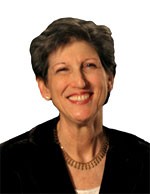
On October 30 th, noted neuroscience researcher and co-founder of Scientific Learning, Dr. Paula Tallal, conducted a live webinar titled “What do Neuroscientists Know About Learning That Most Educators Don’t?” In her presentation, Dr. Tallal discussed her original research on auditory processing, its relationship to language development, and the far-reaching effects that deficiencies in those areas can have on learning.
Research continues to support the hypothesis that difficulty discriminating between small changes in sound is at the heart of learning problems both in students who have a diagnosed difficulty and those who do not. Dr. Tallal described how oral language is the foundation for learning and for most successful educational outcomes, adding that oral language itself is dependent on the brain’s ability to discriminate and process auditory information. Children who have difficulty perceiving the many subtleties of language find the deck stacked against them in their educational careers. They can experience a variety of impediments to learning, including:
- Limited attention : Humans are less likely to pay attention to someone speaking if they only understand a portion of what is said. Recall the last time you spoke to someone with a heavy accent or were on a bad phone line.
- Difficulty following directions : When you only understand a portion of a spoken “order of operations” - like a set of directions – the chance that you follow the order decreases dramatically.
- Memory issues : As Dr. Tallal describes, if you have to concentrate so much on understanding spoken text, you are less able to move information from working to long-term memory, and therefore are less likely to remember it.
Students with this subtle level of auditory processing problem need specific differentiation that is not possible in most classrooms. The good news, as Dr. Tallal describes, is that modern technology can be used to address the difficulties these children face and help bridge these skill gaps. In fact, it is this level of research and development that informed the development of Scientific Learning’s software programs, including Fast ForWord.
To close, Dr. Tallal took questions from the educators relating to how these insights can be used to improve educational outcomes in all classrooms. Teachers left this insightful webinarwith practical strategies that can be used to help learners of all abilities.

